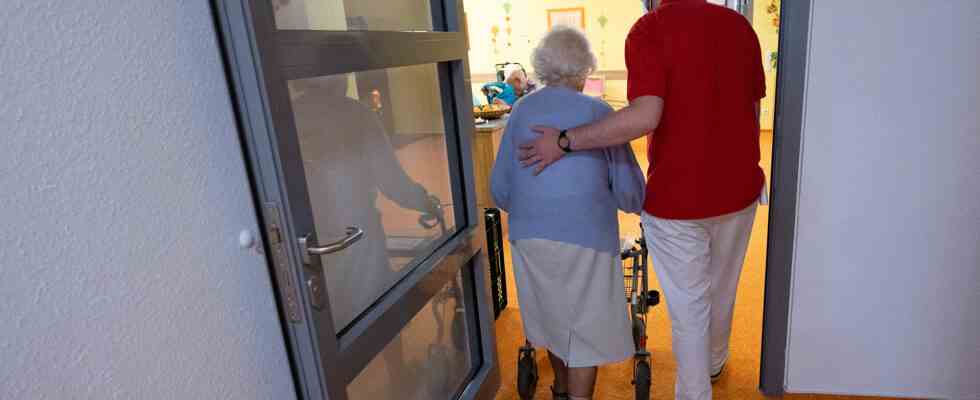Exclusive
Status: 05.03.2022 08:51 a.m
After the Russian attack, many Ukrainians fled – including to Germany. The Federal Association for Home Care and Care fears that the plight of the refugees could be exploited.
The Federal Association for Home Care and Care (VHBP) goes after research Report Mainz assumes that through the implementation of the EU mass influx directive, Ukrainian caregivers will work for a fraction of the wages that Eastern European women from the EU are currently paid in Germany. “It is estimated that up to 300,000 Ukrainian women will work for half the wages and endure all the conditions to feed their families,” says the association’s chairman, Daniel Schlör.
Caregivers from Poland and Romania, who have previously worked mainly in 24-hour care, are being pushed out of the market by Ukrainians. Because of their plight, war refugees are willing to work for the lowest wages. The EU mass influx directive is intended to give refugees from Ukraine protection status in the EU for up to three years – as well as access to health insurance and the job market.
900 euros net for Ukrainian caregivers
Report Mainz researched the case of a Ukrainian woman who left her home in desperation months before the war. In Ukraine she earned 150 euros a month. “I had no choice. There is no work in Ukraine. At most, it’s for young people who are well educated and speak foreign languages,” she says. “But for people older than 35, it’s hardly possible. Then you earn around 150 euros a month there. How are you supposed to live on that?”
In the Ukraine she did three jobs at the same time, without a holiday, always looking for another part-time job. “In Germany I can at least earn more money.” The people she works for are in need of serious care: “It’s hard work, I cry almost every day, but I grit my teeth, I miss my family, my son.” As a wage, she only received 900 euros net.
EU directive increases pressure on wage levels
This sum is also confirmed by the family in which the Ukrainian worked. She took care of her father, who was in need of care. The family paid 2,370 euros every month for the services of the Ukrainian caregiver. “But when she told us later that she only received 900 euros net, that was a shock for us,” says a relative who prefers to remain anonymous. The VHBP chairman Schlör describes this level of wages as “exploitation”.
A sufficient knowledge of German is also a criterion for a good payment of carers. Anyone who can communicate well earns more. Every caregiver in Eastern Europe should earn at least 1,400 euros net per month, criticizes Schlör. This is also regulated in the placement agency “SunaCare”, where he is the managing director.

